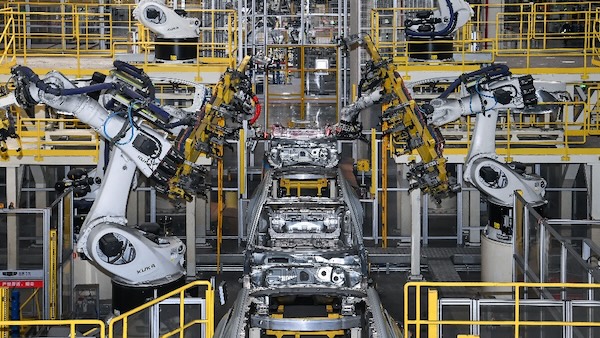China announces breakthrough in solid-state batteries, doubling NEV range
Chinese researchers have announced a major advance in all-solid-state lithium battery technology that could double the driving range of new energy vehicles to 1,000 kilometers on a 100-kilogram battery, according to state media.
All-solid-state lithium batteries have long faced a challenging problem: maintaining tight contact between the solid electrolyte and the lithium metal electrode.
Chinese scientists have developed a self-adaptive interphase in all-solid-state lithium batteries that maintains intimate contact between the lithium metal anode and solid electrolyte without external pressure, a breakthrough that decisively overcomes a major bottleneck toward commercialization.
The researchers from the Institute of Physics of the Chinese Academy of Sciences (CAS), Ningbo Institute of Materials Technology and Engineering of the CAS and Huazhong University of Science and Technology found that the contact between the lithium electrode and sulfide solid electrolyte in all-solid-state lithium batteries is not ideal, with numerous tiny pores and cracks present. These issues not only shorten battery lifespan but may also pose safety risks.
To address this challenge, these researchers introduced iodide ions into the sulfide solid electrolyte. During battery operation, these iodide ions move to the electrode interface under the electric field, forming an iodine-rich interface. The interface can actively attract lithium ions, automatically filling all gaps and pores like self-healing, thereby maintaining tight contact between the electrode and electrolyte.
Prototype batteries prepared based on this technology have demonstrated stable and excellent performance even after hundreds of charge-discharge cycles under standard testing conditions, far exceeding the level of similar existing batteries.
Meanwhile, a research team from the Institute of Metal Research under the CAS has successfully developed a flexible battery capable of enduring up to 20,000 bends. The innovation offers a new solution to long-standing challenges such as high interfacial resistance and low ion transport efficiency in solid-state batteries.
In addition, a research team from Tsinghua University has developed a novel fluorinated polyether electrolyte that significantly enhances the high-voltage resistance and interfacial stability of lithium batteries.
Utilizing the technology, the fully charged battery passed nail penetration and 120 C hotbox (static for 6 hours) safety tests without combustion or explosion, demonstrating excellent safety performance. This research is expected to provide critical technical insights for the development of mature solid-state battery products.

 Ningbo's loong legacy
Ningbo's loong legacy
 Voices from London on China's new Arctic trade route
Voices from London on China's new Arctic trade route
 A look at China's economic data in August
A look at China's economic data in August



